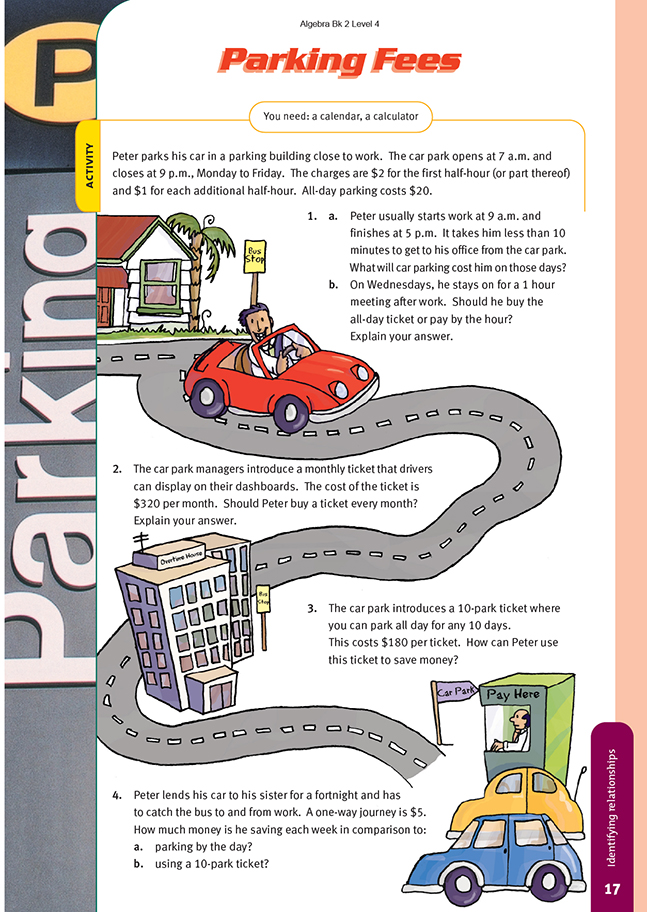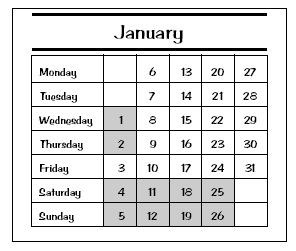Parking Fees
This is a level 4 algebra strand activity from the Figure It Out series.
A PDF of the student activity is included.
Click on the image to enlarge it. Click again to close. Download PDF (566 KB)
use a linear equation to solve a problem
calendar
FIO, Level 4, Algebra, Book Two, Parking Fees, page 17
calculator
This activity asks students to decide between various options for paying for car parking.
The students could use calendars to work out the number of work days that Peter might need a car park. They could shade those days when a car park will not be needed. These include Saturdays, Sundays, and national holidays. The calendar for January on the next page shows how this might work.
This particular January has 21 days that Peter would need a car park if he were to work every day that is possible. It is likely that Peter will need a car park for fewer than 20 days in months where national holidays such as Waitangi Day or Easter occur.
Peter works from 9.00 a.m. to 5.00 p.m. but needs a car park from 8.50 a.m. to 5.10 p.m., allowing 10 minutes for walking to and from his office.
So he needs a car park for 8 hours, 20 minutes. But car parks are charged for each half-hour or part thereof, so Peter is charged for 8 hours, 30 minutes each day. This is the same as 17 half-hour periods. The first halfhour is charged at $2, and the remaining half-hours are charged at $1 each. So 17 half-hour periods will cost
Peter 2 + 16 x 1 = $18. On Wednesdays, Peter needs a car park for an extra hour or 2 half-hours. This will cost an additional $2, making the charge for Wednesdays $20.
In question 2, the students use the daily car-parking charges above to work out which is the better option. They see that a monthly charge of $320 will be cheaper as long as Peter works at least 18 days. (The actual savings will depend on the particular combination of Wednesdays and other days that Peter works in the
month.)
Questions 3 and 4 are dealt with fully in the Answers. (Note that running costs on Peter’s car while his sister is using it are not taken into account in question 4.)
Answers to Activity
1. a. $18
b. Answers should include the fact that it will cost him $20 either way; so as long as the meeting finishes on time, it makes no difference.
2. Peter’s parking fees for 18 days will be $18 x 18 = $324 (not including extra fees for late Wednesdays). This is $4 more than a monthly ticket, so in any month where he will be working 18 days or more, he will be better off with a monthly ticket.
3. In a normal 5-day week when he does not have a monthly ticket, Peter spends $92 (5 x 18 + 2) on parking fees. $180 for 10 parks is equivalent to $18 per park. This is what Peter usually spends anyway, so there is no advantage in using the card
on most days. But if Peter used the card on Wednesdays, when he stays later, he could save $2 each time.
4. a. $42. (92 – 50)
b. $40. (90 – 50)


